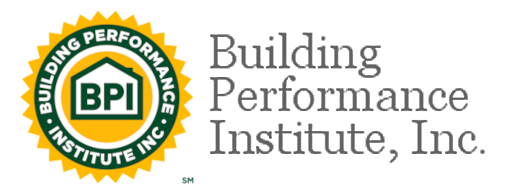What is a Home Energy Audit?

You're sitting at home on your couch and you feel a draft of cold air. The first thing that might come to mind as the problem is your windows, but what if the issue is bigger than that?
Your house is a system of parts that interact with each other. Therefore, your issue could be partially related to your windows, but more likely your home may be under-insulated or warm air is escaping through cracks and gaps that you cannot see. This is where a home energy audit comes into play.

An energy audit is done by an experienced home performance professional, such as a BPI Building Analyst, BPI Energy Auditor or BPI GoldStar Contractor. These contractors are trained to use equipment such as a blower door, thermal imaging camera, and other health and safety testing devices. With these tools, home energy auditors can pinpoint any problems that could be wasting your energy, increasing your utility bills, and making your home unhealthy for your family.
What can I expect during an energy audit?
- A review of your energy consumption history, such as water and electricity usage
- An interior and exterior onsite evaluation using a blower door, thermal imaging camera, and other gauges
- Recommendations for lifestyle changes that can be made to lower your energy usage and bills
- An assessment of your heating and cooling equipment and appliances
- Information on your eligibility for state or national incentives and rebates
- A home energy audit report including a list of prioritized energy improvements with projected costs and return on investment (ROI)
Looking to have an energy audit done on your home?
Use the BPI contractor locator tool to find a BPI GoldStar Contractor or a BPI Rater.
Remember: To get the energy savings and cost reductions determined in your home energy audit, you must follow through and get the home energy audit recommendations done. A home energy audit identifies the problems and issues; it’s up to you to make the next move.

A Remodeling Magazine report, "Cost vs. Value 2016," found that a standard attic insulation job cost $1,268. Air sealing your attic saves you money on your monthly bills, makes your home more comfortable, and also increases your resale value (by as much as 166% in their study!).
To pay for those energy upgrades, you can choose to do the highest-cost first, do the low-hanging fruit improvements now, or do some of them across a couple years. Some states or utilities partially or fully subsidize home energy audits and upgrades. Check out the Database of State Incentives for Renewables & Efficiency website to see if you qualify for any incentives in your area.
Ready to make your home more comfortable and efficient?
Does your home live up to the home performance challenge?

